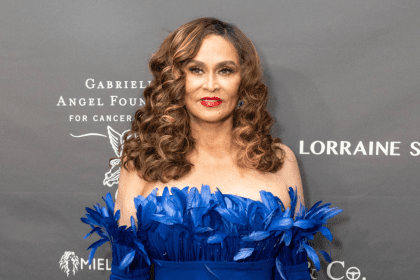Mother’s Day presents an opportunity to celebrate the profound influence of maternal figures in our lives, and few musical genres capture emotional depth and personal storytelling quite like hip-hop. Behind the confident personas and urban narratives that define the genre lies a rich tradition of artists paying heartfelt tribute to the women who shaped them. These songs reveal vulnerable reflections on childhood memories, acknowledgments of sacrifice, and expressions of gratitude that resonate universally.
The complexity of mother-child relationships provides fertile ground for artistic expression, with hip-hop artists often revealing their most authentic selves when addressing maternal bonds. The following ten tracks represent some of the most powerful maternal tributes in hip-hop history, showcasing how these artists translate deeply personal connections into music that touches listeners across generations and backgrounds.
Beanie Sigel transforms struggle into appreciation
Philadelphia rapper Beanie Sigel delivered a powerful maternal tribute with his 2005 track “Mom Praying,” featuring Houston legend Scarface. The song emerged during a turbulent period in Sigel’s career, making its emotional honesty all the more impactful as he reflects on his mother’s unwavering support throughout his personal challenges.
The track resonates through its acknowledgment of a mother’s constant prayers and emotional investment in her child’s wellbeing despite difficult circumstances. Sigel articulates the journey from youthful rebellion to mature appreciation, recognizing how his mother’s spiritual strength provided foundation during his darkest moments.
What distinguishes this tribute is its raw vulnerability, with both Sigel and Scarface abandoning typical hip-hop bravado to express genuine gratitude. The production creates a contemplative backdrop that enhances the emotional weight of the lyrical content, making it a standout maternal tribute in the genre.
Nas channels grief into artistic expression
The 2002 track “Dance” from Nas represents one of hip-hop’s most poignant explorations of maternal loss. Created following the passing of his mother, Ann Jones, the song transforms grief into a beautiful imaginary scenario where he could dance with her once more, capturing the longing that accompanies such profound loss.
Through vivid imagery and emotional transparency, Nas articulates both the immediate pain of loss and the ongoing emotional journey of processing grief. The production provides gentle musical accompaniment that allows his lyrical expression to take center stage, creating an intimate listening experience.
This track stands as a testament to how hip-hop can address complex emotional themes with sophistication and depth. While many maternal tributes focus on gratitude, “Dance” bravely explores the aftermath of loss, offering comfort to listeners experiencing similar grief while honoring his mother’s memory through artistic excellence.
Snoop Dogg reveals vulnerability beneath confident exterior
In “I Love My Momma” from his 1999 album, Snoop Dogg steps away from his trademark laid-back persona to deliver an unabashedly affectionate tribute to Beverly Tate, his mother. The track represents a significant departure from the gangsta rap narratives that initially defined his career, revealing the emotional foundation beneath his public image.
The production incorporates soulful elements that complement the heartfelt lyrical content, creating a warm musical environment for his maternal appreciation. Snoop acknowledges his mother’s guiding influence throughout his journey from challenging circumstances to international success.
This track demonstrates how even artists with the most carefully cultivated public personas often reserve their most genuine emotional expressions for maternal tributes. The contrast between this vulnerability and Snoop’s typical style makes the tribute particularly meaningful for longtime listeners familiar with his musical evolution.
Ghostface Killah documents maternal sacrifice
Ghostface Killah’s 1996 classic “All That I Got Is You” featuring Mary J. Blige stands as one of hip-hop’s most vivid portraits of maternal sacrifice amid poverty. Through detailed storytelling, Ghostface reconstructs childhood memories of material deprivation counterbalanced by his mother’s resourcefulness and unconditional love.
The track’s power derives from its unflinching portrayal of economic hardship alongside familial devotion. Rather than romanticizing struggle, Ghostface presents concrete details of overcrowded apartments, shared bathrooms, and creative solutions for stretching limited resources, painting a realistic picture of urban poverty through a child’s perspective.
The sample of Jackson 5’s “Maybe Tomorrow” creates an emotional foundation that amplifies the narrative impact. This combination of authentic storytelling and soul-stirring production explains why this track remains one of hip-hop’s definitive maternal tributes nearly three decades after its release.
Childish Gambino examines parental resilience
In “Outside” from his 2011 album Camp, Childish Gambino (Donald Glover) crafts a nuanced portrait of his mother’s determination to provide opportunities despite challenging circumstances. The track navigates complex terrain between acknowledging hardship and celebrating maternal strength.
The production builds gradually in intensity, mirroring the emotional development of the narrative as Gambino reflects on his trajectory from childhood to success. He specifically credits his mother’s resilience as foundational to his own ability to persevere through obstacles, creating a tribute that honors her specific contributions to his development.
What distinguishes this track is its exploration of how maternal influence shapes identity formation. Rather than focusing solely on gratitude, Gambino examines how his mother’s example provided a template for navigating adversity that continues to influence his approach to challenges in adulthood.
Talib Kweli elevates spiritual connection
Though never officially released on an album, Talib Kweli’s “Momma Can You Hear Me” represents one of underground hip-hop’s most thoughtful maternal tributes. The track explores both personal appreciation for his mother and broader reflections on maternal influence across cultural contexts.
Kweli employs his characteristic intellectual approach to examine how maternal wisdom provides guidance through life’s complexities. His lyrics elevate the mother-child relationship beyond personal dynamics to recognize its spiritual and cultural dimensions.
The understated production creates space for lyrical complexity, allowing Kweli to navigate between personal anecdotes and philosophical observations. This approach exemplifies how hip-hop artists often use maternal tributes as entry points for exploring broader themes of heritage, wisdom transmission, and intergenerational connection.
Common explores cosmic maternal bonds
In “Forever Your Love,” Common presents a deeply spiritual perspective on the mother-child relationship, exploring the idea that these connections transcend physical existence. The track appeared during a period when his artistic evolution increasingly incorporated spiritual and philosophical elements.
The production features gentle instrumentation that creates contemplative space for his reflections on maternal connection. Common navigates between concrete memories and abstract reflections on the nature of love, creating a multilayered tribute that operates on both personal and universal levels.
This track exemplifies how hip-hop artists often use maternal tributes to explore their deepest philosophical perspectives. By examining maternal love through a cosmic lens, Common elevates appreciation beyond specific circumstances to recognize the transcendent quality of these fundamental human bonds.
Kanye West creates joyful celebration
Kanye West’s 2005 tribute “Hey Mama” stands as one of hip-hop’s most joyful maternal celebrations, created while his mother Donda West was still alive to appreciate its sentiment. The track’s exuberant production and enthusiastic delivery capture the essence of grateful celebration rather than somber reflection.
The song gained additional poignancy following Donda West’s unexpected passing in 2007, transforming from celebration to memorial. This contextual evolution demonstrates how hip-hop’s maternal tributes often acquire new dimensions as artists’ life circumstances change, with the same lyrics carrying different emotional weight across time.
West’s straightforward expression of appreciation without complications or contradictions represents an important dimension of hip-hop’s maternal tribute tradition. The track remains beloved for its unfiltered joy and pride, demonstrating that sometimes the most powerful tributes come through simple, direct expressions of love.
Jay-Z acknowledges maternal journey
In “Smile” from his 2017 album 4:44, Jay-Z crafts a mature reflection on his relationship with his mother Gloria Carter, including her personal struggles and journey toward authentic self-expression. The track represents a significant evolution in his approach to personal storytelling after decades in the spotlight.
The production incorporates soulful elements that complement the reflective lyrical content. What distinguishes this maternal tribute is its recognition of the mother as a complete individual with her own identity and challenges beyond her maternal role, representing a more nuanced perspective than earlier hip-hop tributes.
This track exemplifies how maternal relationships in hip-hop narratives often evolve as artists mature, moving from childhood appreciation to adult recognition of parents as complex individuals. The song demonstrates how contemporary hip-hop increasingly makes space for multidimensional explorations of family dynamics.
2Pac creates definitive maternal anthem
No discussion of hip-hop maternal tributes would be complete without 2Pac’s 1995 classic “Dear Mama,” widely considered the genre’s definitive mother appreciation anthem. The track’s enduring legacy stems from its perfect balance of acknowledging hardship while celebrating unconditional love despite challenging circumstances.
The song’s brilliance lies in its unflinching honesty about family struggles alongside profound gratitude. 2Pac acknowledges his mother Afeni Shakur’s human complexities, including addiction and single parenthood, while emphasizing how her strength and love provided foundation despite these challenges.
The production’s warm, accessible sound helped this deeply personal narrative reach universal audiences. The Library of Congress added “Dear Mama” to the National Recording Registry in 2010, formally recognizing its cultural significance and cementing its status as hip-hop’s most influential maternal tribute.
The evolving tradition of maternal appreciation
These ten tracks represent highlights from hip-hop’s rich tradition of maternal tributes, showcasing how the genre provides space for emotional vulnerability and appreciation that might otherwise remain unexpressed. From celebration to grief, from childhood memories to adult understanding, these songs collectively demonstrate the multifaceted nature of maternal relationships across different circumstances.
As Mother’s Day approaches, these tracks offer listeners opportunities for reflection on their own maternal relationships while appreciating the artistic expression these iconic artists brought to universal experiences. The continued resonance of these songs across generations speaks to how effectively they capture the essential qualities of maternal bonds that transcend specific circumstances.
Hip-hop’s tradition of maternal tribute continues to evolve with contemporary artists adding new dimensions to this enduring theme. What remains consistent is the genre’s ability to create space for authentic emotional expression about one of life’s most fundamental relationships, proving that behind the genre’s diverse styles and approaches lies a shared appreciation for maternal influence.

















